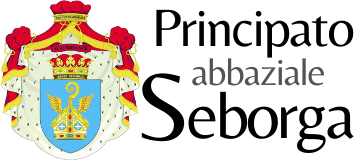Italian Republic
From 1946 until today
Since June 2, 1946, the territory of Seborga is a municipality of the Italian Republic and is administered by its mayor elected among the citizens and residents of Seborga.
Some of them, led by the Seborgian floriculturist Giorgio Carbone, in order to restore Seborga’s independence, unduly elected, in the 60s, their own prince of Seborga, named :Giorgio I.
This vote was carried out in the absence of detailed historical and legal knowledge.
On the death of Giorgio Carbone, Marcello Menegatto was elected, succeeded by his ex-wife, Nina Dobler, through her resignation.
These elections have no historical-legal or religious basis, so it is presumed that they are considered by the Italian authorities to be of a goliardian and purely folkloric nature.
In fact, they have drawn attention to the small Ligurian village, which has become a destination for many tourists.
In order to shed light on many extravagant ideas for reconstructing the ancient principality of Seborga, without any title or legal-historical basis, it was considered appropriate to carry out this historical-legal relationship, using official sources, texts and online reviews.
In any case, we would like to thank the late Giorgio Carbone, as he was the source of inspiration for these studies, which were written by the writer and completed on May 23, 2019.
As a result of these researches, in collaboration with a group of historical researchers passionate about theology, it was decided to create the Monastic Order of Seborga, within the Polish National Catolich Church of Monaco, in collaboration with the Italian Orthodox Church Autocephalous Ancient Oriental, in full ecumenical spirit, in order to rebuild the ancient Abbey Principality of Seborga.
On December 28, 2019, a presbyter was elected as Abbot Mitrate of Seborga and the solemn inauguration ceremony was celebrated.
The main aim of this epoch-making event was to claim autonomy within the Italian Republic, in order to promote economic and social development and to have the first Cistercian State of mankind, today without territorial possession, recognised in the appropriate seats.

